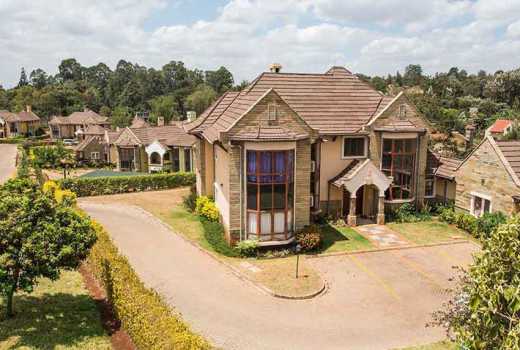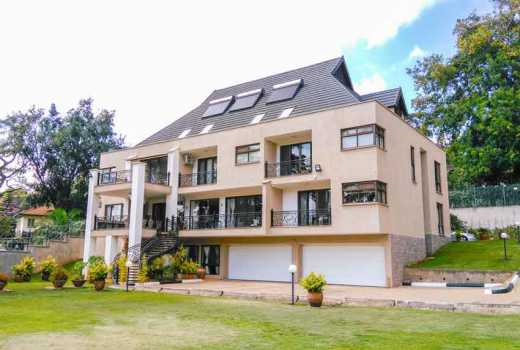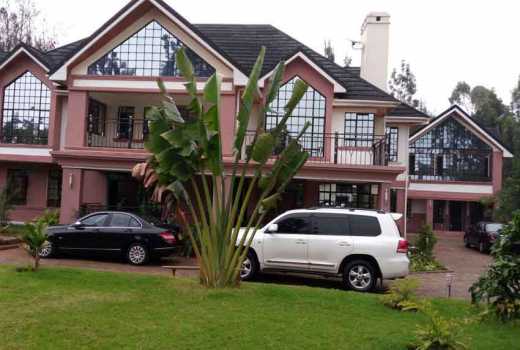
Beneath every criminal’s mind lies evil genius and each time police discover and stamp out the latest trick, the thugs pop up in a different place with a new trick, always a step ahead.
As carjacking, bank raids and kidnappings decline, break-ins have increased in a puzzling but calculated pattern in which criminals target empty homes or enter highly secured houses.
Kenya Alliance of Residents Association (Kara) deputy CEO and head of programmes Henry Ochieng’ identified Karen, Lavington and Lang’ata as the hardest hit suburbs. He said most of the robberies were inside jobs where a family member, worker or security guard colludes with intruders.
“We used to receive complaints every week but the complaints have gradually gone down. It was a real cause of alarm. Police could have improved on their part while most of the resident associations have put in place elaborate security measures,” says Ochieng’ who also estimated that 40 per cent of complaints received revolved around house break-ins.

Ochieng’ blamed the burglaries to aloofness of residents and lack of interest about their neighbours.
He also said people in upmarket estates hardly bother to raise the alarm when they spot strangers or suspicious people.
No one knows this better than robbery victims who relocated to more expensive and ‘safer’ neighbourhoods ringed with fences and gates.
Two years ago, Bernard* moved from his humble South B house and upgraded residential status to State House Avenue where he thought his family would be safer. But barely a month after moving in, the journalist got a rude shock – thieves raided his house stealing two laptops, an iPad, an assortment of jewellery, mobile phones and other valuables.
The break-in took place as the family attended church on a warm Saturday. When they returned home in the afternoon, the thugs were gone after gaining access into the house using a duplicate key.
“I had to look for a new house immediately because my wife was scared to death after the incident,” he recalls.
Bernard is just one of the victims of robbers who routinely breach the ‘maximum security’ in Nairobi’s upmarket suburbs with impunity. At least five of his colleagues who live in different gated communities have suffered similar break-ins.

In areas like Karen, Lavington, Lang’ata, Kileleshwa, Hurligham, Kilimani, Thome and Greenpark among others, precautionary security measures are paramount. But despite the elaborate security, thieves still manage to overcome security guards, burglar alarms, perimeter walls, CCTV cameras, razor wires and electric fences to steal expensive household property.
A report by Development Policy Management Forum (DPMF) linked human factors to increasing insecurity in areas hitherto considered safe. The report indicated the likelihood of a felony being committed was high in homes accessed by many different people.
“Family, friends, landscaping companies and their staff, delivery people and former tenants are just a few of the people who gain access over time. Each one of these can pass on information that undermines the security measures in place,” stated the 2010 report.
During an interview with the then Nairobi County CID boss Nicholas Kamwende, he said that break-ins are neither a new phenomenon nor on the rise.
“They are not escalating. There is nothing unusual. These break-ins take place in empty homes when nobody is around,” explained Kamwende.
The senior detective instead said that in the recent past, incidences of violent robberies carried out by organised gangs were common in many gated communities.

“We had guys who were well organised. They pretended to be offering certain services but after gaining the trust of occupants of a house, they would turn out to be robbers. But we managed to contain them,” said Kamwende.
Ochieng’ of Kara says residents were now more concerned about their personal safety and security firms should, therefore, vet potential security guards thoroughly.
“I am also calling on our members to have active and functional resident associations, which makes it easier when coming up with solutions to our challenges,” he urged.
Protective Security Industry Association (PSIA) secretary Moses Kaniaru, though acknowledging the possibility of a conspiracy between workers and or relatives, ruled out the involvement of guards claiming no robbery complaint has ever been registered at the organisation.
PSIA is an association of some of the security companies operating in the country. Kaniaru said it was not only in gated communities where break-ins occur, but that the crimes are also prevalent in other residential estates and commercial properties.
“The guards you are talking about cannot be our members since no complaint has been brought to my attention. Break-ins happen frequently. We cannot rule out collusion between either a guard or a relative in the house, but each case has to be dealt with individually instead of generalising,” stated Kaniaru.
Securex marketing and communications manager Brian Sagala advised home owners to seek the services of reputable security firms whose guards’ details are shared with Kenya Security Industry Association (KSIA).
“At Securex, we ensure that those things (break-ins) don’t happen. As a company, we ensure that guards have certificates of good conduct, before we hire them. In addition, we require a letter of recommendation from the local chief seconded by a professional letter from a person who know them,” explained Sagala.
 The Standard Group Plc is a multi-media organization with investments in media
platforms spanning newspaper print
operations, television, radio broadcasting, digital and online services. The
Standard Group is recognized as a
leading multi-media house in Kenya with a key influence in matters of national and
international interest.
The Standard Group Plc is a multi-media organization with investments in media
platforms spanning newspaper print
operations, television, radio broadcasting, digital and online services. The
Standard Group is recognized as a
leading multi-media house in Kenya with a key influence in matters of national and
international interest.
